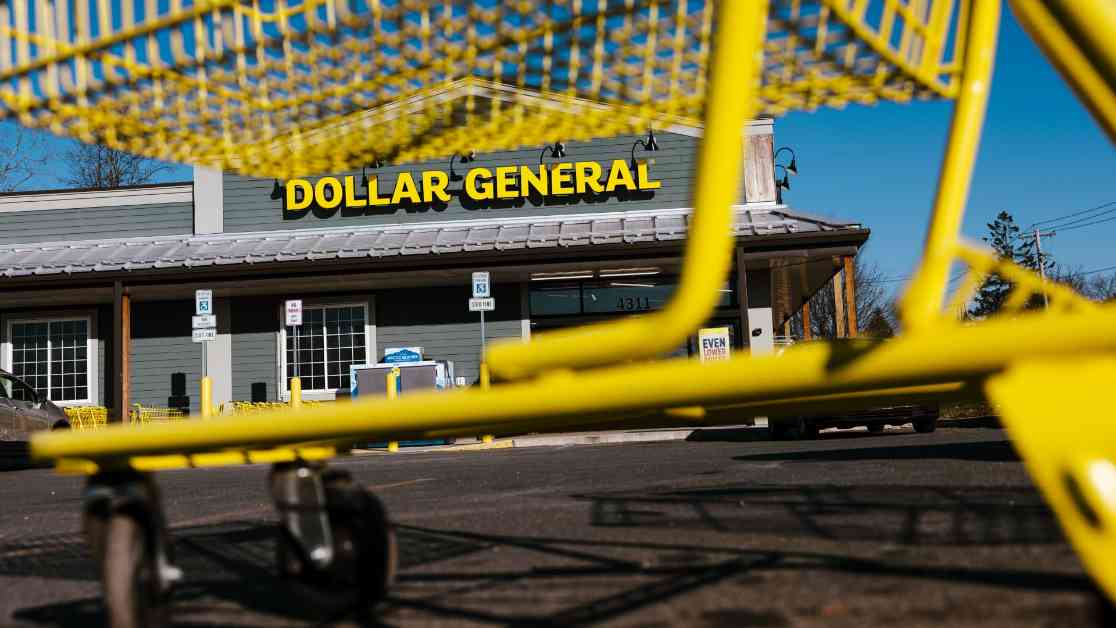Consumers who frequent Dollar General, Dollar Tree, and Kroger stores are unknowingly paying over $90 million annually in cash-back fees, according to a recent report by the Consumer Financial Protection Bureau. These three retail giants charge fees to customers who request cash back at checkout, with fees ranging from $0.50 to upwards of $3 per transaction. While many retailers offer cash-back options to customers paying with debit or prepaid cards, the practice of charging fees for this service has raised concerns about potentially exploiting certain customer demographics, particularly those living in banking deserts without easy access to bank branches or free cash withdrawals.
The Impact of Cash-Back Fees on Vulnerable Communities
The CFPB’s analysis highlights how cash-back fees disproportionately affect rural communities, lower-income earners, and people of color. These populations are more likely to rely on retail locations for cash withdrawals due to limited access to traditional banking services. In essence, these fees serve as an additional financial burden for those who are already struggling to make ends meet.
The Disparity in Cash-Back Practices Among Retailers
Not all retailers charge cash-back fees. The CFPB’s sampling revealed that five out of eight companies offer cash back for free, including major retailers like Albertsons, CVS, Walgreens, Target, and Walmart. These companies recognize the importance of providing accessible financial services to their customers without imposing additional fees. In contrast, retailers like Dollar General, Dollar Tree, and Kroger have chosen to monetize cash-back transactions, potentially alienating customers who are already facing financial challenges.
Consumer Advocacy and the Fight Against “Junk Fees”
Consumer advocacy groups like the Consumer Federation of America have been vocal in condemning the practice of charging cash-back fees. Adam Rust, the director of financial services at the CFA, describes these fees as “thousands of little cuts” that can make it increasingly difficult for consumers to manage their finances. The CFA and other advocacy groups are calling for greater transparency and fairness in retail banking practices to protect consumers from unnecessary financial burdens.
Retailers’ Justifications for Cash-Back Fees
In response to criticism, retailers like Dollar General have defended their cash-back fees as a cost-effective alternative to other financial services like check cashing or ATM withdrawals. A Dollar General spokesperson emphasized that the company’s cash-back options are designed to provide convenience to customers who may not have easy access to traditional banking services. While this argument may hold some merit, consumer advocates argue that retailers should prioritize customer satisfaction and financial well-being over profit margins.
The Growing Trend of Cash-Back Fees in Retail
The practice of charging cash-back fees is a relatively new phenomenon in the retail industry. In recent years, retailers like Kroger have implemented tiered fee structures for cash back transactions, with fees ranging from $0.50 to $3 depending on the amount withdrawn. This shift towards monetizing cash back reflects a broader trend in the retail sector, where companies are looking for new revenue streams to offset declining sales and increasing operating costs.
The Rise of Banking Deserts in America
One of the driving factors behind the prevalence of cash-back fees is the rise of banking deserts in America. According to the Federal Reserve Bank of Philadelphia, over 12 million Americans, or approximately 3.8% of the population, live in areas without easy access to traditional bank branches. This lack of physical banking infrastructure has forced many consumers to rely on retail locations for basic financial services, including cash withdrawals. As a result, retailers have become de facto financial service providers for underserved communities.
The Role of Online and Mobile Banking in Financial Inclusion
The rise of digital banking, accelerated by the Covid-19 pandemic, has further exacerbated the issue of banking deserts in America. Many banks have closed their brick-and-mortar branches in favor of online and mobile banking platforms, leaving vulnerable populations with limited access to essential financial services. While online banking offers convenience and flexibility, it may not be accessible to everyone, particularly those without reliable internet access or digital literacy skills. As a result, retail locations have become essential hubs for cash transactions in underserved communities.
The Blame Game: Retailers vs. Banks
Retailers and banks have engaged in a blame game over cash-back fees, with each side pointing fingers at the other for imposing financial burdens on consumers. Retailers argue that banks charge exorbitant fees for processing debit and credit card transactions, forcing them to recoup these costs through cash-back fees. On the other hand, consumer advocates argue that retailers should bear the cost of providing cash-back services as a way to attract and retain customers. The ongoing debate underscores the need for greater collaboration between retailers and financial institutions to ensure fair and equitable access to financial services for all consumers.
The Long-Term Implications of Cash-Back Fees
As the debate over cash-back fees continues, it is essential to consider the long-term implications of these practices on consumers and the retail industry as a whole. Retailers that prioritize customer satisfaction and financial well-being are more likely to build trust and loyalty among their customer base, ultimately leading to increased sales and profitability. Conversely, retailers that prioritize profit margins over customer needs may risk alienating consumers and damaging their reputation in the marketplace. By addressing the root causes of cash-back fees and implementing fair and transparent pricing strategies, retailers can enhance their competitive advantage and foster a more inclusive financial ecosystem for all consumers.














